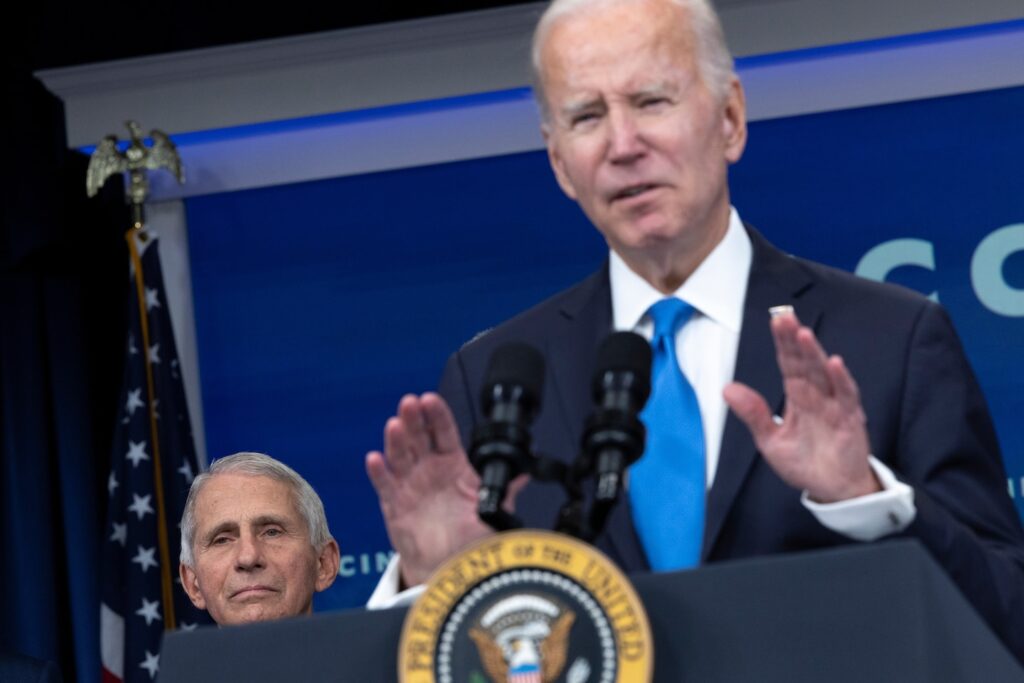At issue is government action that is no laughing matter, a covert pressure to suppress speech and deny access to speech to Americans, thereby violating the First Amendment. There is. This brief comes from the Foundation for Individual Rights and Expression (FIRE), which spends a lot of time reminding scholars of the existence of the First Amendment. FIRE points out that some people to support FIRE's arguments are “not aware of the irony” of their doing so. Their “astonishing contradictions” include supporting state government actions similar to the federal actions they deplore.
The basic facts of Monday's incident are not in dispute. The high-stakes debate concerns the legal significance of how these facts are characterized.
Biden administration officials at the White House, FBI, Centers for Disease Control and Prevention, and other federal agencies have criticized the platform for spreading various posts expressing views the government dislikes or deems “problematic.” Relentlessly reached out to social media platforms in an attempt to influence them. Many were about the pandemic and included supposed “disinformation” (about lockdowns, masks, vaccines, etc.) that turned out to be not only debatable but also true. Did.
In 2023, the U.S. Court of Appeals for the Fifth Circuit issued a ruling against certain federal officials forcing social media platforms to remove or import certain constitutionally protected speech. upheld the injunction. The Biden administration asked the Supreme Court to recognize “the ability of the president's inner circle to use the bully pulpit to address matters of public concern” and unprecedented restrictions on the FBI and CDC's ability to carry out their duties. I asked him not to.
something This is certainly unprecedented. Government attempts to shape speech on social media platforms are as new as the platforms themselves. But attempts by governments to expand their reach are as old as governments themselves.
There is little clarity as to when an attempt at “persuasion” constitutes “coercion.” And when “chin-cheeking” and “smack-talking” behavior creates unacceptable pressure for the platform. A common problem is pressure from governments to make platforms' “content moderation” policies (determining what and whom to remove or downgrade) reflect their wishes.
Social media platforms are private entities that express editorial preferences through policies. If the government interferes with these, the platforms would be violating the First Amendment.
The government has a need and obligation to speak out. As one particularly loquacious congressman (Theodore Roosevelt) said, the presidency is “the bully's pulpit.” Other institutions must also appeal to the public about their aims and methods.
In his characteristically clumsy remarks, President Biden accused social media companies of “killing people” by not censoring pandemic-related posts he didn't like. He has a right (often exercised) to talk about his stupidity in public. But government speech should not be kept secret to hide covert attempts to control the speech of others.
When governments speak secretly to platforms for the purpose of shaping the discourse on those platforms, they are not speaking to the people to whom they are accountable. Rather, it is an attempt to unfairly restrict the speech of individuals. This is an attempt (according to another court brief) to “launder constitutional violations through private entities.”
The Biden administration has misbehaved, but the urge to drag private entities onto the government's saddle is bipartisan. FIRE's brief notes that some state attorneys general are objecting to federal pressure on social media platforms, saying the sale of LBGTQ-themed products could violate some states' obscenity laws. He hints that he is putting the cart before the horse and points out harshly that he himself put pressure on Target. And they suggested, ominously, that Target's “directors and officers may have been negligent” and therefore liable because they authorized the sale of products that “negatively impacted” the company's stock price.
Regarding Monday's incident, the Biden administration said the deal with the platform was not constitutionally significant because the process was “collaborative.” this Should it be reassuring?
Until a clear judicial rule emerges, this rule may suffice. The government should limit itself to publicly explaining and justifying its actions, and avoid making private statements that suggest a secretive or even pressure-filled platform. So those of you who want to force platforms to adopt more permissive content moderation policies to protect disadvantaged conservatives understand that this is inconsistent with the Constitution and (therefore) with conservatism. There is a need to.


